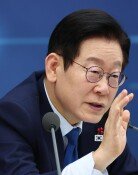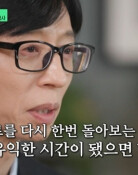[Editorial] China`s Failure to Do More
[Editorial] China`s Failure to Do More
Posted October. 07, 2009 07:28,
China has failed to persuade North Korea to return to the six-party talks in the near future. North Korean leader Kim Jong Il told visiting Chinese Premier Wen Jiabao in Pyongyang Monday, We are willing to go ahead with multilateral dialogue including the six party talks after looking at the outcome of bilateral talks with the U.S. Kim added, Our relationship with the U.S. must turn peaceful through bilateral talks. Though mentioning the six-party talks, he apparently meant Pyongyang will return to that dialogue only if it gets its way in relations with Washington. If China is content with his comment, it does not deserve to be the host of the six-party talks.
Beijing is said to have promised substantial economic assistance to Pyongyang on the occasion of Wens visit. His delegation signed several agreements, including an exchange document on economic assistance. China will provide an estimated 170 billion won (145 million U.S. dollars) for the construction of a bridge over the Apnok (Yalu) River. The North in return likely mentioned the six-party talks to save Chinas face.
Chinas assistance might also violate U.N. Security Council Resolution 1875 on sanctions on North Korea. The resolution requires all member states and international financial and credit institutions not to enter new commitments on grants, financial assistance, or concessional loans with the North, except for humanitarian and developmental purposes that directly address the needs of the civilian population or denuclearization. If Beijing promised assistance banned by the U.N. to maintain its influence over Pyongyang, it does not deserve a seat at the U.N. Security Council. Rather, this could further encourage North Korea to develop nuclear weapons, making it believe that international sanctions against it might no longer be as strict as they used to be.
China must clearly realize why North Korea insists on bilateral talks with the U.S. North Korea has long argued that the two countries must discuss nuclear disarmament in tandem with the signing of a peace treaty and withdrawal of U.S. forces in South Korea. If this is accepted, Pyongyang will gain recognition as a nuclear power. Even if the six-party talks are resumed, they will end up on the sidelines of North Korea-U.S. dialogue.
The international community must not be duped by North Koreas tactics. U.S. Secretary of State Hillary Clinton said on the North Korea-China talks that the five parties of South Korea, the U.S., Japan, China and Russia agree that the six-party talks are the best way to resolve North Koreas nuclear program. This is a relief. South Korean Foreign Minister Yu Myung-hwan also said yesterday, North Koreas nuclear issue must be discussed in the six-party talks. South Korea, China and Japan held a trilateral summit in Beijing Saturday. The leaders of these three countries can and should advance coordination efforts for the denuclearization of North Korea.



![요양원 321곳 중 85곳 “치매발병후 기초수급자 전락 사례 있어”[히어로콘텐츠/헌트③-下]](https://dimg.donga.com/c/138/175/90/1/wps/NEWS/IMAGE/2025/12/16/132980397.1.jpg)



